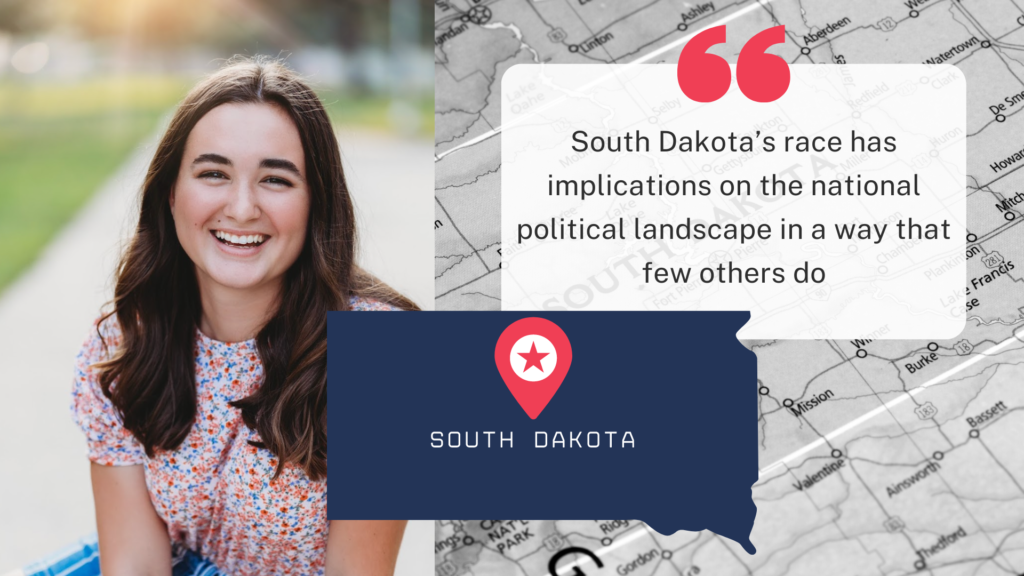 PSC Midterm Election Reflections: South Dakota
PSC Midterm Election Reflections: South Dakota
Jordan Phillips (’26)
South Dakota’s comfortably conservative voter base exempts it from the potential for sweeping policy changes in the way that states like North Carolina experience. However, South Dakota’s race has implications on the national political landscape in a way that few others do.
The main issue on the ballot for South Dakotans is the gubernatorial race. While South Dakota hasn’t had a Democratic governor since 1979, the seat is not safely red. Governor Kristi Noem won her current seat by only 11,000 votes in 2018. This year’s race is similarly close, with the South Dakota State Poll placing Democratic nominee Jamie Smith just 4 percentage points behind Noem.
Smith’s potential of ousting Kristi Noem has implications that affect the lives of people within the broader United States. Noem’s close ties to the Trump administration make her a likely running mate should Donald Trump run for the presidency in 2024. Even if Trump doesn’t run, CNN, Politico, and the New York Times have all reported that Noem could be eyeing a potential spot on the 2024 presidential ticket. A Jamie Smith victory would take Kristi Noem away from her most visible stage, serving as a signal that Trump-era conservatism will no longer be tolerated by even the most reliably red supporters.
This is especially apparent when looking at South Dakota’s US Senate race. Republican incumbent and Senate Minority Whip John Thune currently leads democrat Brian Bengs by a healthy 25% according to the SDSU polls. Thune has distanced himself from the Trump administration (Trump even went so far as to call Thune a RINO in 2020), signaling that South Dakota’s conservative voter base isn’t shifting more liberal, but rather is shifting away from Donald Trump.
The voters that were crucial in electing Donald Trump and Kristi Noem are distancing themselves from these figures, signaling the potential for a larger shift in 2024 and beyond. Considering that the Aspen Institute reported in 2021 that rural states like South Dakota transformed the 2016 election, it is clear that shifting political tides within this state is cause for national attention. South Dakota’s position on abortion, gun control, and marijuana legalization may not experience major change because of this election, but the presence of a national political figure–and the future of the republican party–could.
Jordan Phillips (’26) is an undergraduate student at Duke University and a member of the Polis Student Committee. This piece was submitted as a reflection on the 2022 Midterm Elections. This content does not represent the official or unofficial views of the Sanford School, Polis, Duke University, or any entity or individual other than the author.



 PSC Midterm Election Reflections: South Dakota
PSC Midterm Election Reflections: South Dakota